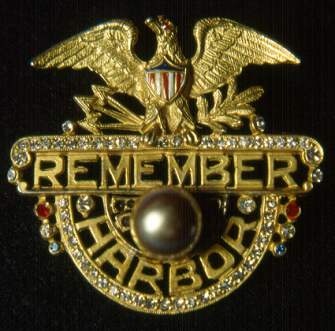Book review
How Four Titans Won The War In The West
By Andrew Roberts, HarperCollins, 720 pages, $35
Buy this book now
Four men shared the responsibility for the direction of the Second World War for the Western Allies: Franklin Delano Roosevelt, Winston Churchill, General George Marshall, and British army chief Sir Alan Brooke. Andrew Roberts has taken on the task of documenting the wartime activities of these leaders in Masters and Commanders. The task of telling the story of even one of these wartime giants would be daunting. By tackling all four, Roberts has given us the most detailed account to date of Allied strategic decision-making during the war— and given us a rather forbidding tome.
Forbidding as it may be, Masters and Commanders is a fabulous resource of information, using many sources that had until now been unavailable to historians, including oral histories, the diaries of many key players, and notes and memoirs of observers. Roberts describes the various Allied summit conferences of the war in meticulous detail, keenly focusing attention on the decision-making processes of the top leaders.
 Of course, no figures are more vividly drawn than those of the masters, Churchill and Roosevelt. Churchill was a stubborn man, impatient and temperamental, with a personality that put off many. When Prime Minister Neville Chamberlain admitted him to his cabinet in 1939 as First Sea Lord, it was with great reluctance. After all, Churchill had spent the years since 1933 warning about Nazism, urging rearmament, and denouncing Chamberlain’s policy of appeasement. Back in power, Churchill opened and maintained a private line of communication with Roosevelt. Churchill had established at least a comradeship with Roosevelt by May 1940, when the Germans invaded Western Europe and the Chamberlain government fell. As prime minister, Churchill intensified his relationship with Roosevelt, who by then had come to appreciate the necessity of England’s survival and of the eventual entry of the United States into the war.
Of course, no figures are more vividly drawn than those of the masters, Churchill and Roosevelt. Churchill was a stubborn man, impatient and temperamental, with a personality that put off many. When Prime Minister Neville Chamberlain admitted him to his cabinet in 1939 as First Sea Lord, it was with great reluctance. After all, Churchill had spent the years since 1933 warning about Nazism, urging rearmament, and denouncing Chamberlain’s policy of appeasement. Back in power, Churchill opened and maintained a private line of communication with Roosevelt. Churchill had established at least a comradeship with Roosevelt by May 1940, when the Germans invaded Western Europe and the Chamberlain government fell. As prime minister, Churchill intensified his relationship with Roosevelt, who by then had come to appreciate the necessity of England’s survival and of the eventual entry of the United States into the war.
Within a month of Pearl Harbor, Churchill was in Washington with an entourage to meet Roosevelt and the Joint Chiefs of Staff. Army Chief of Staff George Marshall was Roosevelt’s principal military advisor. Although a protégé of General John Pershing and well regarded as the brightest star in the peacetime army, Marshall failed to impress the British delegation. He was pushing a plan to invade Europe in 1942, an idea the British viewed as wildly impractical, given the paucity of Allied landing craft, the numerical superiority of the Germans in France, and the Germans’ extensive experience in combat.
Gently, the British nudged the Americans into accepting, at least temporarily, the indirect approach. According to this thinking, when the enemy occupies a vast geographic position and also outnumbers you, a frontal attack on his strong point is unwise. Instead, you attack sensitive objectives on the periphery of his empire, so each attack whittles down his strength and morale. Although Marshall had not yet given up on the notion of an early invasion of northern Europe, the British succeeded in nudging the Americans closer to participating in attacks on the coast of North Africa and the Mediterranean.
Roosevelt did not rely nearly as heavily on Marshall or his joint chiefs’ expertise as Churchill did. He tended to develop war policy by conferring with old and trusted civilian advisors such as Harry Hopkins and Henry Morgenthau, the pair of whom one US officer derided as “drug store strategists.” The Americans were also hampered by nagging suspicious that the British were out-negotiating them with a view toward political, strategic, and economic advantages in the postwar world.
Nevertheless, American viewpoints began to prevail as the US contribution to the war grew exponentially. Churchill wanted to strike at the Balkans, but the Americans overruled him. Brooke wanted to command the invasion of Europe, but the Americans put US General Dwight Eisenhower in charge. The British (and American General George Patton) wanted the Allied advance into France to be swift and based on fast-moving spearheads that could pierce deeply into Germany at an early date. Eisenhower and the Americans (except Patton) advocated a continuous front and got it.
By the time of the February 1945 Yalta conference, the majority of issues to be settled were political. What Brooke and Marshall did with their Soviet counterparts was of secondary importance to the decisions made by the heads of state. Roosevelt was dying of congestive heart failure when he attended, his haggard appearance and diminished energy deeply shocking the British. The agenda included the postwar government of Poland, the partitioning of Germany, the political future of the Eastern European countries liberated by the Soviet Red Army, and the entry of the Soviet Union into the Pacific War.
One wonders whether any leader, however healthy and capable, would have been able to anticipate the comprehensive manner in which Soviet premier Joseph Stalin was to break his promises in the coming years, initiating a 60-year Cold War. But history records, rightly, that Roosevelt, Churchill, Marshall, and Brooke, whatever their virtues and faults, were giants, providentially available to serve and lead when freedom and decency were in their greatest hour of peril.
—Brian John Murphy
Fairfield, Connecticut




FOLLOW US »
